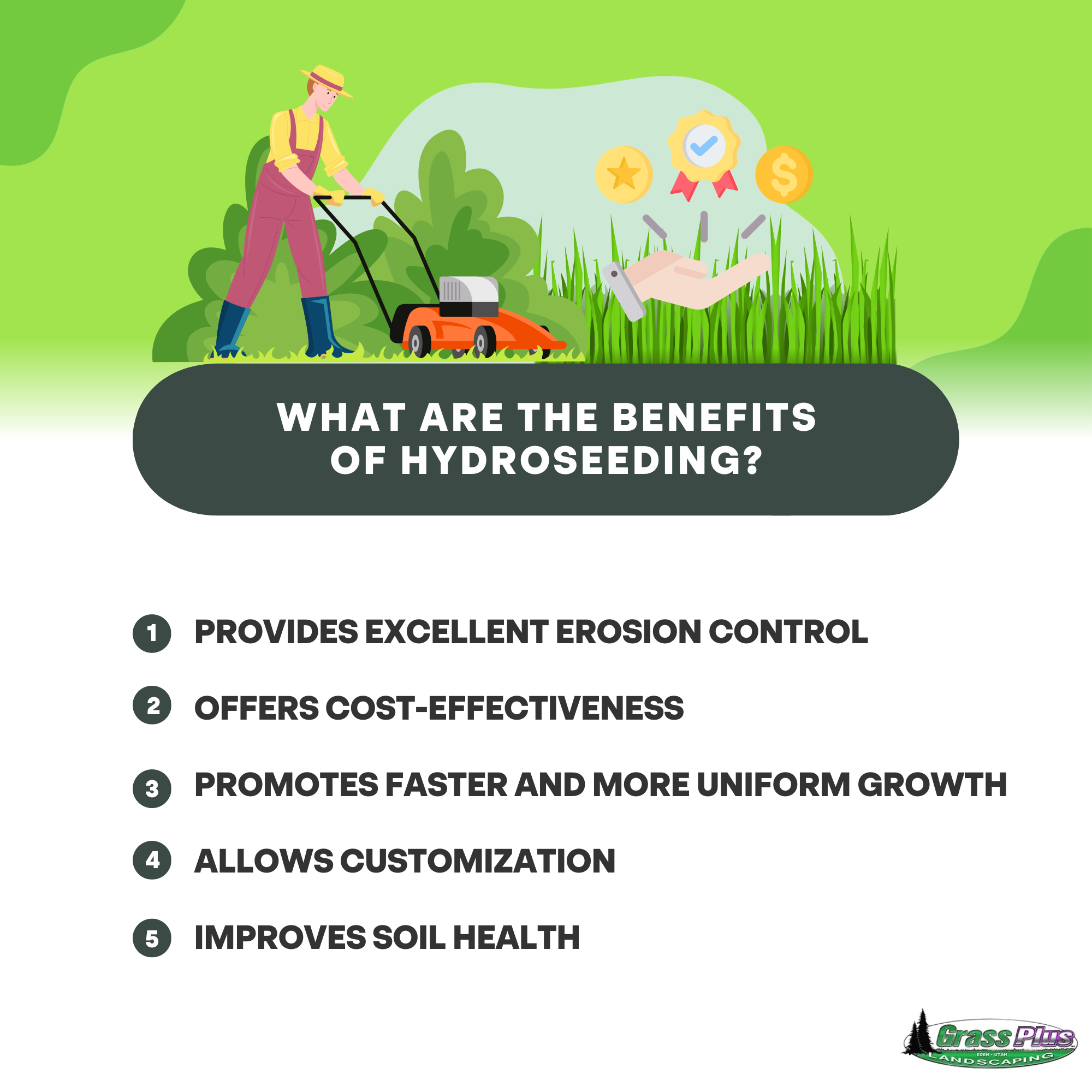Having a beautiful, well-maintained lawn is a dream for many homeowners. It provides a refreshing outdoor space and enhances the overall aesthetics of the property. If you’re in the process of improving the look of your lawn, you’ve probably come across various methods, such as sodding, seeding, and hydroseeding.
While traditional seeding methods have been around for centuries, hydroseeding is a relatively modern approach that has gained popularity in recent years. It involves a combination of seed, fertilizer, mulch, and water, which is mixed in a tank and then sprayed onto the soil using a specialized hydroseeding machine.
What Is Hydroseeding?
Hydroseeding is a planting technique that uses a slurry of seed, mulch, fertilizer, and water to establish vegetation. The slurry is applied to the desired area using a hydroseeder which is a machine that sprays the mixture evenly.
Hydroseeding is commonly used for large-scale planting projects, such as re-vegetation of slopes, parks, and golf courses, but it can also be used for residential lawns and smaller areas.
The Process of Hydroseeding
The process of hydroseeding involves several steps:
1. Site Preparation
Before the hydroseeding process begins, the site needs to be properly prepared. This includes clearing any debris, rocks, or weeds and ensuring the soil is adequately graded and moist.
2. Mixing the Slurry
The next step is to mix the slurry, which typically consists of water, seed, mulch, fertilizer, and sometimes additives like tackifiers (to help the mixture stick to the soil) or other soil conditioners. The exact composition of the slurry may change depending on the project requirements.
3. Application
Once the slurry is prepared, it is loaded into the hydroseeder tank. The hydroseeder is then taken to the desired planting area, and the application process begins. The hydroseeder sprays the slurry onto the soil, ensuring even coverage.
4. Post-Application Care
After the hydroseeding process is complete, it’s essential to ensure proper care and maintenance for seed germination and growth. This may include regular watering, avoiding foot traffic on the seeded area, and following any specific instructions provided by the hydroseeding company.
What Are the Benefits of Hydroseeding?
Now that you understand how it works, let’s dive into five hydroseeding benefits. Like any other method, there are pros and cons of hydroseeding, and it’s essential to weigh them before making a final decision for your lawn.
The Pros of Hydroseeding
1. Provides Excellent Erosion Control
The mulch in the slurry acts as a protective barrier, preventing soil erosion from wind and water. This is particularly beneficial for sloped areas or locations prone to erosion.
2. Offers Cost-Effectiveness
Compared to sodding, hydroseeding is a more budget-friendly option, since it does not require a lot of tools and materials and is not labor-intensive.
3. Promotes Faster and More Uniform Growth
The moisture in the slurry accelerates seed germination, and the mulch provides a favorable environment for root development. As a result, hydroseeded areas typically establish vegetation more quickly and evenly compared to traditional seeding methods.
4. Allows Customization
With hydroseeding, you can choose from a wide variety of seeds, including different grass species and blends, as well as other desired plants. This flexibility enables you to customize the vegetation according to your preferences and site requirements.
5. Improves Soil Health
Some hydroseeding mixtures include additives like organic matter or soil conditioners, which can enhance the soil’s fertility and structure over time.
The Cons of Hydroseeding
1. Requires Careful Post-Application Care
While hydroseeding can produce great results, it demands more attention and maintenance than sodding. You need to water the seeded area regularly and avoid any disturbances, such as foot traffic until the grass is well-established.
2. Involves a Longer Establishment Period
Compared to sodding, which provides instant results, hydroseeding needs patience. It will take time for the grass to grow and fully cover the area. If you’re looking for immediate greenery, hydroseeding may not be the best choice.
3. Can Be Risky in Dry and Hot Conditions
The success of hydroseeding largely depends on sufficient moisture. In arid regions or during droughts, maintaining the necessary moisture levels can be challenging, increasing the risk of seed failure.
Is Hydroseeding the Right Choice for You?
Now that we’ve covered different hydroseeding pros and cons, you might be wondering if it’s the right choice for your lawn. Hydroseeding is worth considering if:
- You have a large area to cover. Hydroseeding is more cost-effective than sodding for extensive lawn projects.
- You’re willing to invest time in maintenance. If you can provide the necessary post-application care, hydroseeding can deliver successful results.
- Your location has an adequate water supply. For hydroseeding to work, you need to ensure a consistent water source.
- You’re looking for a customized lawn. If you have specific preferences for grass species and want to incorporate other plants, hydroseeding can fulfill your requirements.
Key Takeaway
Hydroseeding is a versatile and cost-effective method for establishing vegetation on various scales. The benefits of hydroseeding include erosion control, faster and more uniform growth, and the ability to customize the vegetation. However, it requires careful post-application care and time for establishment.
Before opting for hydroseeding, assess your lawn requirements, budget, and willingness to invest in maintenance. By doing so, you’ll be on the right path to creating your dream lawn.
Get Expert Hydroseeding Services With Grass Plus, Inc.
Looking for professional hydroseeding in Colorado? Grass Plus, Inc. is here to help! We offer top-notch hydroseeding and a wide array of landscaping solutions to keep your lawn lush and healthy. Contact us today!






